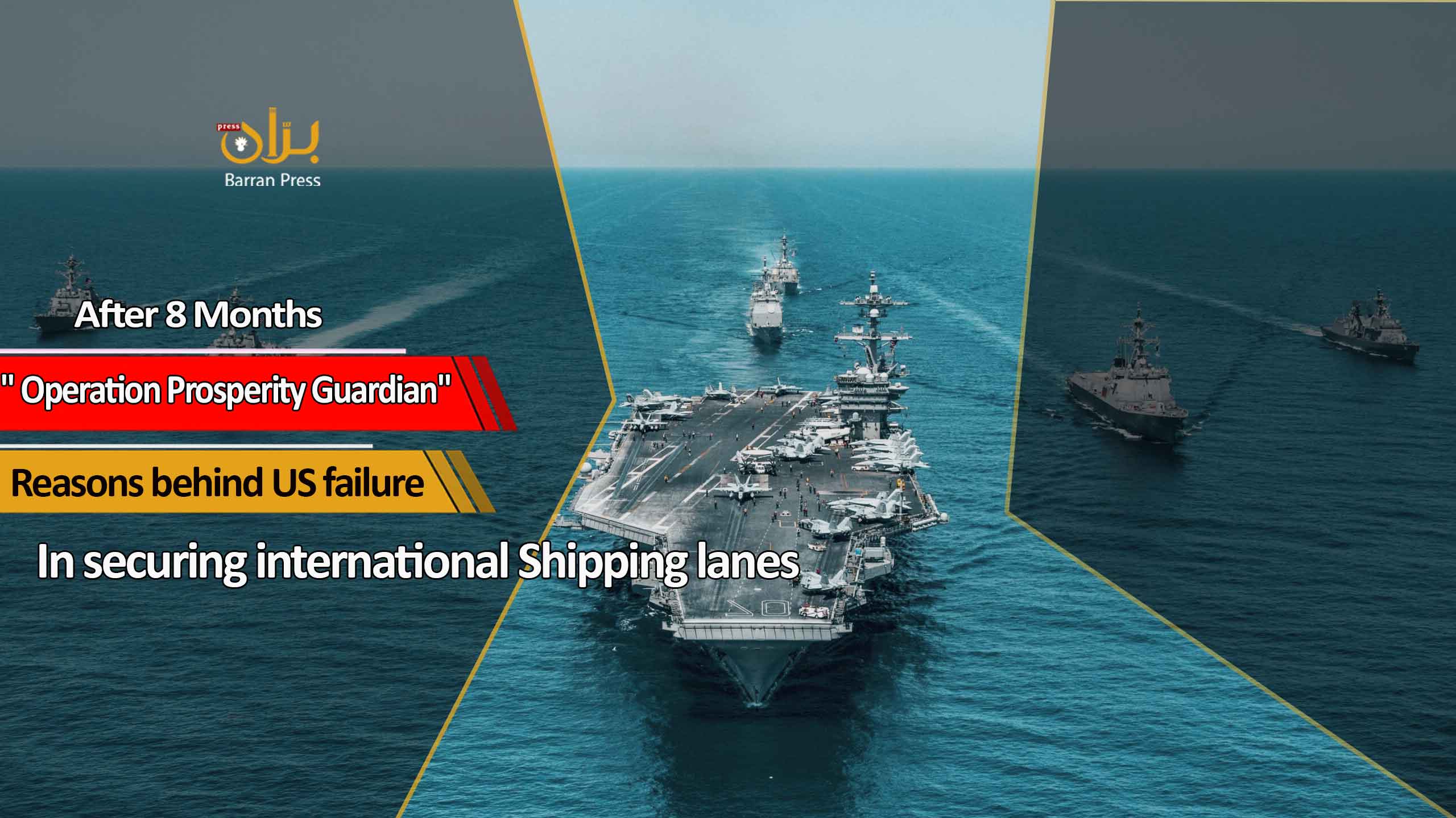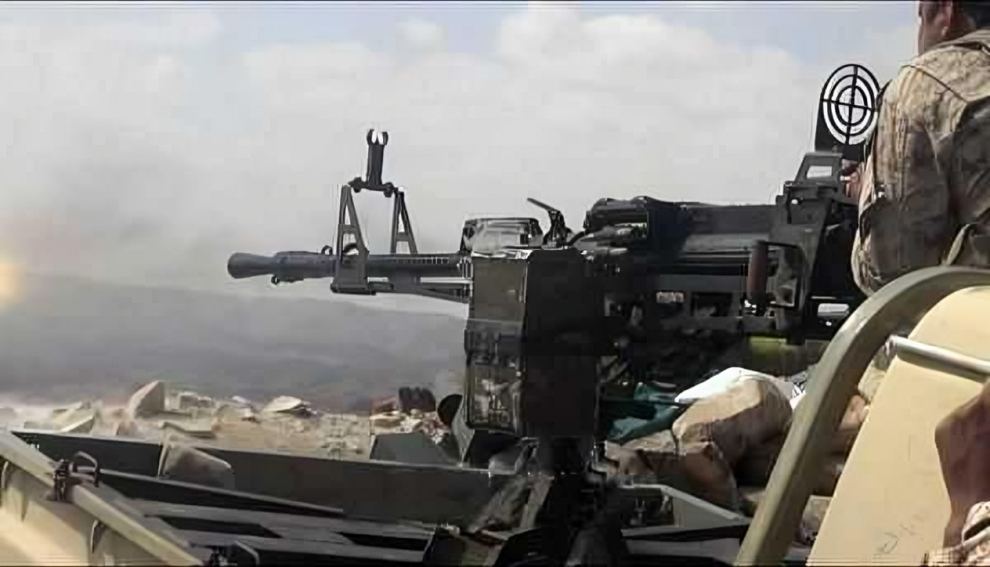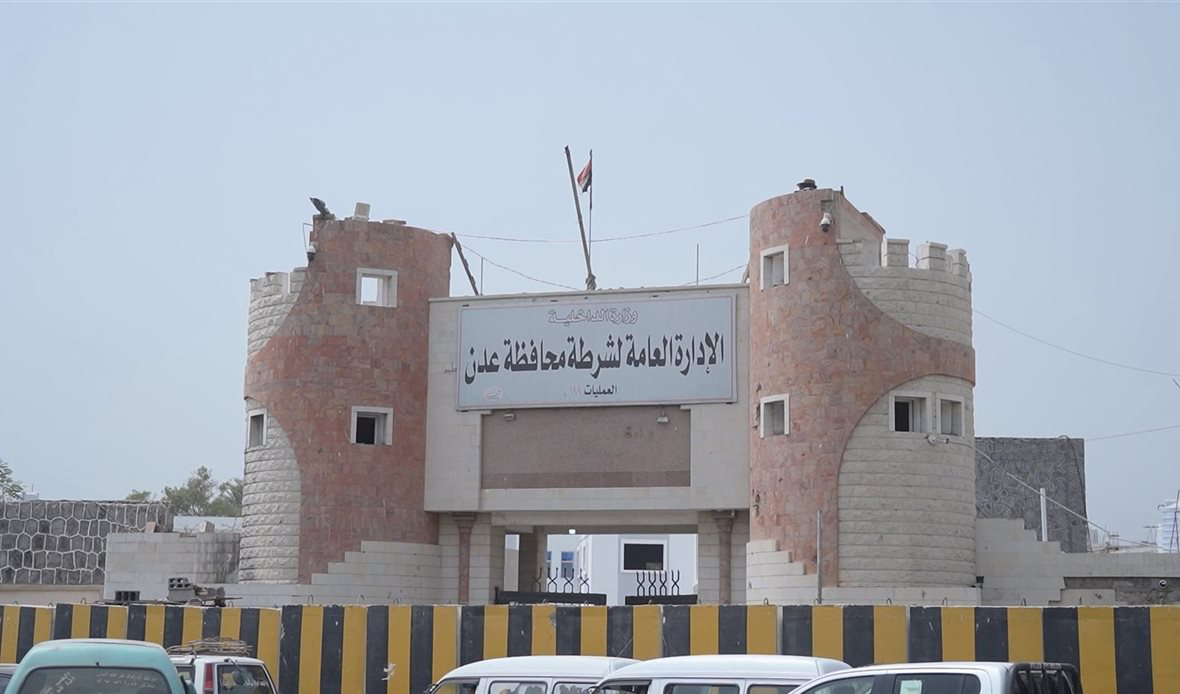
Barran Press - reports unit
In December 18, 2023, the United States launched "Operation Prosperity Guardian" as an international response to counter attacks by the Houthi group, designated as a terrorist organization, targeting commercial vessels in the Red Sea.
Since November 2023, the Houthis, listed as a terrorist group globally, have initiated attacks using missiles and drones against commercial cargo ships in the Red Sea, the Arabian Sea, and the Gulf of Aden.
These attacks have driven up maritime insurance costs and prompted many international shipping companies to opt for the significantly longer route around the southern tip of the African continent.
To deter the Houthis, the US-led "Operation Safe Lanes" coalition, with significant British participation, commenced airstrikes on Houthi positions in Yemen in January 2024. In response, the Houthis expanded their operations to target vessels linked to Washington and London, as they announced.
However, after eight months of the international coalition's operation and airstrikes against the Houthis, they seem to have failed to achieve their objectives of impacting the Houthis' capabilities. The Houthis claimed responsibility for an attack on Tel Aviv early Friday, July 19, which, according to the Israeli Broadcasting Authority, resulted in the death of one Israeli and injuries to 10 others.
Following this attack, Israeli forces launched airstrikes on the port of Hudaydah (western Yemen) on Saturday evening, July 20, targeting fuel tanks, a power plant, and other facilities, leading to their destruction and fires that raged for days.
The Israeli airstrikes resulted in 9 fatalities and 80 injuries among civilians, along with material losses estimated by news reports to exceed $320 million. This attack was considered unprecedented since the Houthis began targeting commercial vessels on November 21, 2023.
Since the Israeli attack on the port of Hudaydah last week, which was met with widespread condemnation from the region, the Red Sea has experienced a notable lull, while US forces continue limited airstrikes against Houthi positions and capabilities.
Over the past 10 days, no offensive operations have been recorded by the Houthis. The last attack claimed by the group occurred a day before the Israeli attack on Hudaydah, specifically on July 19, 2024, targeting the vessel "Lobivia" in the Gulf of Aden.
Adapting and Exploiting
Barran Press spoke with several experts and researchers to understand the reasons behind the operation's failure.
Yemeni media and communications researcher Sadeq Al-Wasabi believes Washington's inability to effectively deter Houthi attacks and secure international shipping in the Red Sea stems from the Houthis' ability to adapt to military strikes. He argues that the group has "invested in gaining sympathy and recruiting more fighters, contributing to the continuation of these attacks."
Al-Wasabi also points in his talk to "Barran Press" to the limited international response, with some major powers not directly participating in the coalition, diminishing the effectiveness of joint operations. He further criticizes the initial reliance of the West, particularly the US administration, on misleading reports about the Houthis, leading to a delayed understanding of the threat they pose to regional and international interests.
American Investment
Political analyst Yassin Al-Tamimi in his talk to "Barran Press" believes the declared military engagement between the Americans and the Houthis is not driven by a genuine intention to end the Houthis' military role or weaken them. He argues that the Houthi group is an "American investment."
Al-Tamimi states, "The Americans still believe in the importance of the sectarian role of the Houthis in destroying the foundations of the nation and changing its identity, a historical role that the Shiites of the region have played for centuries."
He believes the Houthis' actions in the Red Sea are fully coordinated with the Americans, explaining why American airstrikes have had no noticeable impact on the Houthis, their leadership, or their military capabilities.
Regarding the recent Israeli airstrike on the port of Hudaydah, Al-Tamimi sees it as a "scapegoat or shooting range to prove that there is a force defending the oppressed in Gaza and to vent the frustration of the people of the region due to the crimes of genocide committed by the Zionist enemy in Gaza."
He adds that the coalition established by America and Britain to protect ships in the Red Sea has never targeted the Houthis, and there is no credible information confirming the authenticity of American military data.
Saving Face
Former political researcher and diplomat Mustafa Al-Jubazi believes the failure to deter the Houthis, internationally designated as a terrorist organization, is due to a "surgical intervention to save face."
Al-Jubazi argues that the Houthis will not be deterred, seeing themselves as active players in the regional and international equation.
He believes that after the experience of the Arab military coalition, no one will dare to engage in a war in Yemen, and they realize there is no desire to expand the conflict beyond Gaza.
Since January 12th, the US and UK have carried out approximately 560 airstrikes against the Houthis on the ground, resulting in the deaths of 58 individuals and injuries to 86 others, according to the Houthis.
The internationally recognized Yemeni government claims that Western strikes are ineffective in neutralizing the Houthi threat to navigation and that the most effective solution is to support its armed forces to retake Hudaydah, its ports, and other areas under Houthi control.
Despite the Houthis' continued attacks, only three out of 162 ships, which they claim to have targeted since last November, have reported serious incidents or injuries.





